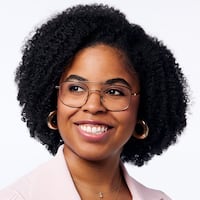Do you sometimes sleep with your cell phone?
The California Department of Public Health (CDPH) has issued a warning against it, because the radiation from the devices may be harmful to our bodies.
»RELATED: Do cell phones cause cancer? New study sheds light on lingering question
“Although the science is still evolving, there are concerns among some public health professionals and members of the public regarding long-term, high use exposure to the energy emitted by cell phones,” Karen Smith, CDPH director and state public health officer, said in a statement earlier this week.
Why is it potentially dangerous?
When cellphones send and receive signals, they emit radio frequency energy, which maybe impact human health. “Children’s brains develop through the teenage years and may be more affected by cell phone use,” Smith wrote.
»RELATED: Nighttime cellphone usage linked to poor mental health
To limit the exposure, CDPH is implementing new guidelines, which include keeping the phone away from the body, reducing cellphone use when the signal is weak, decreasing the use of cell phones to stream audio or video, downloading or uploading large files and keeping the phone away from the bed at night.
They also are advising people to remove headsets when not on a call and to avoid products that claim to block radio frequency energy as they may actually increase your risk.
"We know that simple steps, such as not keeping your phone in your pocket and moving it away from your bed at night, can help reduce exposure for both children and adults," Smith said.
Take a look at the details of the recommendations here.
»RELATED: Study finds phones are dirtier than you think
About the Author
Keep Reading
The Latest
Featured


